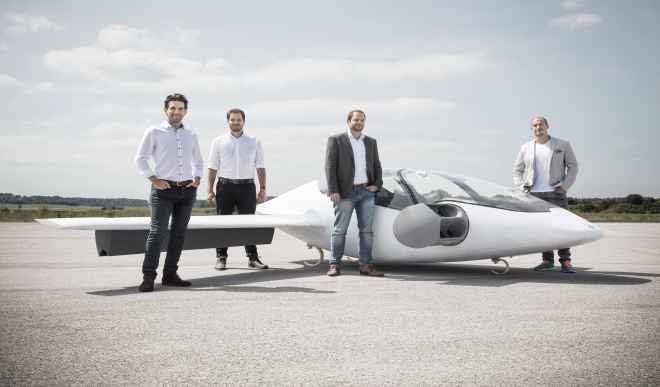Start-up Lilium raises $90m to make five-seater ‘air taxi’
Lilium, a German start-up with ambitions to develop a ‘flying taxi’, has raised $90 million in funding to make its flying car a reality. The new round of investment makes it one of the best-funded electric aircraft projects to date. The firm is developing a five-seat electric powered jet capable of vertical-take off, that could […]


Lilium, a German start-up with ambitions to develop a ‘flying taxi’, has raised $90 million in funding to make its flying car a reality.
The new round of investment makes it one of the best-funded electric aircraft projects to date.
The firm is developing a five-seat electric powered jet capable of vertical-take off, that could whizz passengers on a 12 mile (20 kilometre) journey in just five minutes.
Lilium said it plans to use the new funds to expand hiring and carry it through the next development stages of its five-seater electric jet, buying it time to meet stringent regulatory approvals.
The 70-employee company has roughly as many outstanding job postings as current staff, and plans to rapidly scale up hiring of aeronautical engineers, physicists, computer science and electric propulsion experts, Mr Gerber said.
Lilium said the new funding, led by Chinese internet giant Tencent, also includes Liechtenstein-based LGT,
Europe’s largest family-owned investment firm; European venture firm Atomico; and Obvious Ventures, whose co-founder, Evan Williams, is a co-founder of Twitter.
Long the stuff of science fiction and futuristic cartoons such as ‘The Jetsons’, aviation and technology leaders are now racing to develop new types of electric-powered flying vehicles, dubbed ‘flying cars.’
Firms working on flying cars include Airbus, Uber and a range of start-ups including one backed by Google co-founder Larry Page, called Kitty Hawk.
In April, Lilium said it was developing a five-seat ‘flying taxi’ after mounting successful test flights of a full-size, two-seat jet capable of a mid-air transition from hover mode, like drones, to wing-borne flight, like conventional aircraft.
Wing-borne, electric-powered flight allows commuter aircraft to travel five or six times the distance of drones, a Lilium executive said.
A 12-mile (20 kilometre) trip from Manhattan to JFK Airport could take as little as five minutes, he estimated.
Lilium is shooting for a manned test flight of its five-seat aircraft around 2019, and to roll-out ‘flying taxi’ commuter services, subject to regulatory approvals, sometime in the next decade. The lightweight aircraft will be powered by 36 electric jet engines mounted on its wings via 12 moveable flaps.
With a range of 186 miles (300 kilometres) and cruising speed of 186 miles/hour (300 km/hour), Lilium will be the only electric aircraft capable of both vertical take-off and jet-powered flight, the company said.
‘The concept goes far beyond what you typically see from German start-ups,’ said Remo Gerber, the former European managing director of online taxi firm Gett, who was named Lilium’s chief commercial officer last month.
